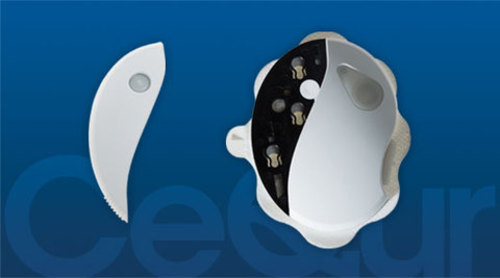CeQur SA, recently announced that the outcomes from a clinical study that assessed the company’s PaQ® Insulin Delivery Device will be published in the Journal of Diabetes Science and Technology. The results reveal that switching to the PaQ device from multiple-daily insulin injections (MDI) can help type 2 diabetes patients overcome the negative perceptions of insulin treatment and insulin therapy, as well as improve patient compliance.
The scientific paper, “Novel Simple Insulin Delivery Device Reduces Barriers to Insulin Therapy in Type 2 Diabetes: Results from a Pilot Study,” provides patient-reported results from a prospective 6-week, single-arm study that assessed the feasibility of PaQ’s use, as well as the efficacy and safety of transitioning study participants from MDI.
Over 11 million people suffering from type 2 diabetes in the United States and Europe are required to inject insulin to manage their condition each day.
“Embarrassment, fear of hypoglycemia, stigma, and pain are among the barriers that prevent many people with type 2 diabetes from adhering to their prescribed insulin regimen, despite the known clinical benefits of consistent insulin therapy,” explained the lead author Norbert Hermanns, PhD, who is also the director of the Research Institute at Diabetes Academy Mergentheim in Bad Mergentheim, Germany. “Results from this study suggest that use of the PaQ device can greatly reduce these barriers, potentially supporting improved adherence to insulin therapy,” he added.
Eighteen study participants used the PaQ device for two weeks and reported a strong and significant reduction in overall BIT (difference = -5.4 +0.77, p= 0.01, effect size = 0.70). The majority of the patients perceived less stigmatization, less hardship from insulin therapy and injection, and less fear concerning hypoglycemia. Negative attitudes toward treatment and patient distress were also slightly reduced.
“It is possible that this reduction of insulin-therapy barriers may have contributed to the trend toward improved glycemic control that was also observed in this study and previously reported in the journal Diabetes Care,” added Doug Lawrence, CeQur’s CEO, in a press release.
“The data published today demonstrate that PaQ does exactly what we envisioned it would do – simplify insulin therapy to make it easier and more comfortable for people with type 2 diabetes to adhere to their treatment and, we hope, live healthier, happier lives as a result,” concluded Lawrence.


